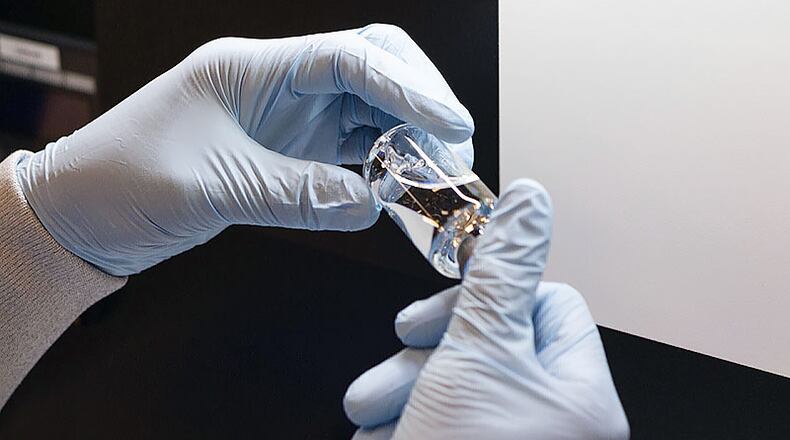Emory University is closely involved in research that federal officials said Wednesday is showing promise as treatment for COVID-19 and may be available soon for emergency use.
Dr. Anthony Fauci, director of the National Institute of Allergy and Infectious Diseases, told reporters Wednesday that a preliminary trial of the drug, remdesivir, showed it could shorten the time to recovery by about a third.
“This is very optimistic,” Fauci said.
The U.S. Food and Drug Administration is likely to announce an emergency use authorization for remdesivir, The New York Times reported Wednesday.
President Donald Trump called the developments “a very positive event.”
Remdesivir is an experimental anti-viral, intravenous drug that was created several years ago as a potential treatment for Ebola. It is designed to block the infection of healthy cells in the human body. It has been used in research with animals for potential treatment to other coronavirus diseases. The drug is made by Gilead Sciences, a California-based biopharmaceutical company. Remdesivir has been used as treatment for some COVID-19 patients in China, where the disease is believed to have started.
Fauci and Trump based their remarks on a preliminary National Institutes of Health study of hospitalized COVID-19 patients who received the drug at several dozen medical facilities, including some at Emory. There are 1,063 patients in the study. The report discussed Wednesday is based on an unspecified portion of those 1,063 patients who were moderately or severely infected and received some oxygen supplementation. Emory has 103 patients in the entire study, more than any institution involved in the research, officials said.
> RELATED: Test of anti-COVID drug shows promising results
Dr. Aneesh Mehta, an associate professor of medicine in Emory’s division of infectious diseases, said the results showed patients who received the drug showed improved recovery time. He stressed that the results are preliminary and require more detailed study.
“We do hope and believe that remdesivir is allowing patients to recover more rapidly,” Mehta told reporters.
Mehta said remdesivir should not be viewed as a “silver bullet.”
“It’s one additional tool to help get our patients better more rapidly and get them home to their families more quickly,” he said.
Prior remdesivir research has been viewed positively, but experts have said additional testing is necessary.
A separate study of remdesivir by Chinese researchers found remdesivir did not provide significant benefits over a placebo. Mehta noted the NIH study had more patients and included some patients from several nations.
About the Author
The Latest
Featured




